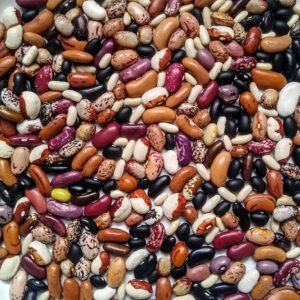
Great news for plaintiffs Organic Seed Alliance, High Mowing Seed, Sierra Club, Center for Food Safety, and the farmers and consumers we represent. And big thanks to our lawyers at Earth Justice and Center for Food Safety.
September 21, 2009, Federal District Court Judge White ruled that USDA-APHIS agreed with plaintiffs that USDA-APHIS violated the National Environmental Policy Act by failingto prepare an Environmental Impact Statement before deregulating RoundUp Ready sugarbeets, based on his finding that APHIS improperly failed to evaluate the impacts, including socio-economic impacts, resulting from possible cross-pollination of conventional sugar beets and Swiss chard and table beets in the Willamette Valley. The remedy phase of the case will occur on October 30.
Organic seed is the foundation of organic farming and organic food integrity. We must continue to protect this natural resource, along with the rights of organic farmers to be protected from negative economic impact from GE crops, and consumers rights’ to choose to eat food free of GE components.
We’ll keep you informed as we learn more. For now, here is a section from
“In light of the large distances pollen can travel by wind and the context that seed for sugar beets, Swiss chard, and table beets are primarily grown in one valley in Oregon, Plaintiffs have demonstrated that deregulation may significantly effect the environment.
As the court concluded in Geertson Seed Farms v. Johanns, this Court finds that the potential elimination of farmer’s choice to grow non-genetically engineered crops, or a consumer’s choice to eat non genetically engineered food, and an action that potentially eliminates or reduces the availability of a particular plant has a significant effect on the human environment. “APHIS’s reasons for concluding that the potential for the transmission of the genetically engineered gene is not significant are not ‘convincing’ and do not demonstrate the ‘hard look’ that NEPA requires.
Because APHIS concluded that it was not required to consider the effects of gene transmission and observed the lack of evidence regarding an organic beet seed market, it did not consider the effects of gene transmission on conventional farmers and consumers of sugar beet seed or of gene transmission to the related crops of to red table beets and Swiss chard. To the limited extent APHIS did examine this issue, it did so only on a cursory level. It did not consider the fact that the isolation distances are only voluntary. It did not examine whether the isolation distances were actually followed and likely to be followed in the future. Nor did APHIS analyze, in light of the evidence that pollen may travel significant distances, whether the isolation distances set by the Oregon Seed Certification Standards are sufficient to protect the non-genetically engineered crops. Moreover, there is no support in the record for APHIS conclusion that non-trangenic sugar beet will likely still be sold and will be available to those who wish to plant it and that farmers purchasing seed will know whether it is transgenic because it will be marked and labeled as glyphosate tolerant. Therefore, the Court finds that APHIS’s finding of no significant impact was not supported by a convincing statement of reasons and thus was unreasonable. APHIS is required to prepare an EIS.”
